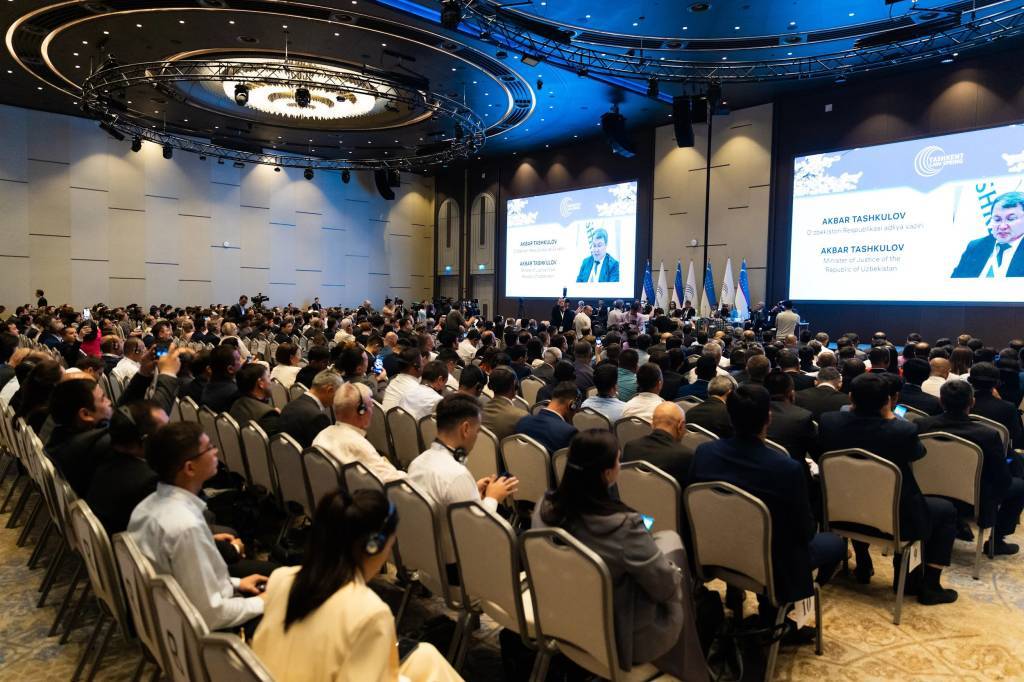
Tashkent hosted the Third International Legal Forum “Tashkent Law Spring”, which has become one of the most important events in law in the Central Asian region.
The event, organized by the Ministry of Justice of the Republic of Uzbekistan with the participation of the UN, the Regional Dialogue, and other partners, was attended by representatives of more than 20 countries, including experts from Armenia, Belarus, the United Kingdom, Germany, Georgia, Azerbaijan, Russia, Romania, Saudi Arabia, Singapore, Türkiye, Slovenia, Japan.
Current issues of ensuring the priority of law through high-quality rule-making, the use of digital technologies in the legal field, the development of legal education, new approaches to the provision of public services, issues of forensic examination, the role of mediation and the institution of arbitration in dispute resolution, anti-corruption policy, intellectual property, were discussed at the forum on “Fundamental rights – eternal values”.

The Minister of Justice of the Republic of Uzbekistan Akbar Tashkulov noted that the dignity and equality of each person are essential. Today’s policy of Uzbekistan is aimed precisely at this.
International experts drew attention to the fact that the renewal of the Constitution of Uzbekistan has become a historic event in the world of law. The strengthening of the priority of human rights and protection was noted.

Deputy Director of the Information Center of Hague Conference on Private International Law Ekatherina Abrosimova raised the issue of civil liability about using artificial intelligence.
Helen Burroughs, an international expert on justice reform, spoke about the digital transformation of the judiciary and commented on the advantages and subtleties of online litigation and the use of digital technologies in the administration of justice.
At the forum, all sessions were held in the spirit of lively discussions. International experts and guests of the forum recognized the significant progress made in the legal system of Uzbekistan. Separate meetings were organized with representatives of traditional law enforcement agencies, and necessary agreements were reached.
Norgul Abduraimova, UzA